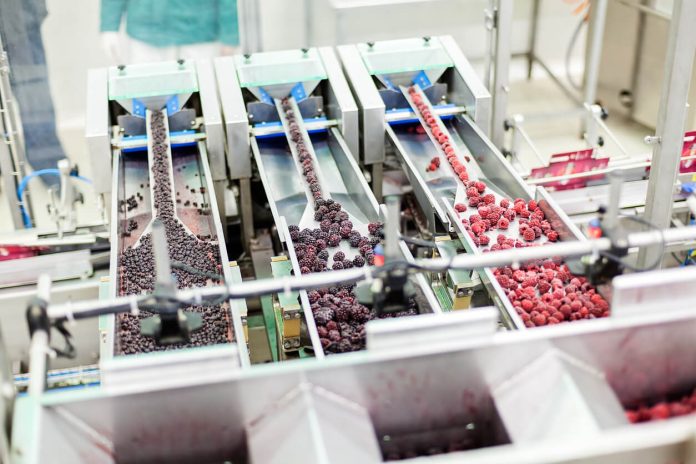The landscape of small-scale food processing is witnessing a remarkable transformation driven by the integration of advanced technology in production facilities. This shift towards high-tech solutions marks a significant evolution in food processing methods, underscoring the growing importance of technological innovation in boosting efficiency and precision in smaller-scale operations.
Boosting Productivity in Small-Scale Food Processing
For small-scale food processors, the embrace of advanced technology equates to a substantial enhancement in production efficiency. Technologies such as automated processing lines facilitate continuous, optimized production, markedly reducing downtime and elevating the quality of output. For example, in small-scale specialty beverage production, the implementation of automated brewing and bottling systems has been linked to a significant increase in output efficiency. According to a study conducted by the National Association of Manufacturers, small businesses in the food and beverage sector that adopted technological solutions reported a 15% increase in production efficiency over a five-year period. This improvement in productivity is reflective of a wider trend across diverse sectors within the small-scale manufacturing industry.
Minimizing Errors and Reducing Waste
In small-scale food processing, the utilization of advanced technology plays a pivotal role in diminishing errors and curtailing waste. Traditional, manual methods prevalent in smaller operations are inherently more prone to errors, potentially leading to product inconsistencies and inefficiency. The deployment of automated systems in these settings results in greater precision and uniformity, effectively diminishing the margin for error. This precision is not only crucial for maintaining product quality but also aligns with the principles of sustainable operation. Data from environmental agencies suggests a clear trend towards reduced waste in industries that have embraced technology, a benefit that small-scale food processors can capitalize on to optimize resource use and minimize environmental footprints.
Advantages of Automated Labeling in Small-Scale Food Processing
In the specific context of small-scale food processing, automated labeling machines have emerged as an indispensable tool. These machines offer high accuracy and efficiency in packaging processes, ensuring precise label placement at speeds that keep up with market demands. The precision and consistency afforded by automated labeling are not just about aesthetics; they are essential for compliance with stringent food safety and regulatory standards. This aspect of technology plays a crucial role in safeguarding consumer health and reinforcing the brand reputation of small-scale food processors.
Investment in Technology: A Strategic Imperative for Small Food Processors
For small-scale food processors, investing in advanced technology is not merely a choice but a strategic imperative. Automation and high-tech solutions offer a pathway to scale up operations, boost efficiency, and elevate product quality. These technologies enable small businesses to manage larger volumes of production with heightened precision and consistency, leading to greater customer satisfaction. Additionally, technology reduces reliance on manual labor, an important consideration in light of labor cost concerns and workforce availability challenges. Importantly, the adoption of technology supports sustainable and eco-friendly practices, key to the ethos of many small-scale food processing businesses.
Conclusion
For small-scale food processing enterprises, the integration of advanced technology into production facilities is becoming increasingly vital. Advanced technology offers unparalleled efficiency, reduces errors, and minimizes waste, all of which are essential for these businesses to flourish in the contemporary market. As the food processing industry continues to evolve, the role of technology in small-scale operations is set to become even more prominent, highlighting its importance in ensuring competitiveness, sustainability, and business growth.



































